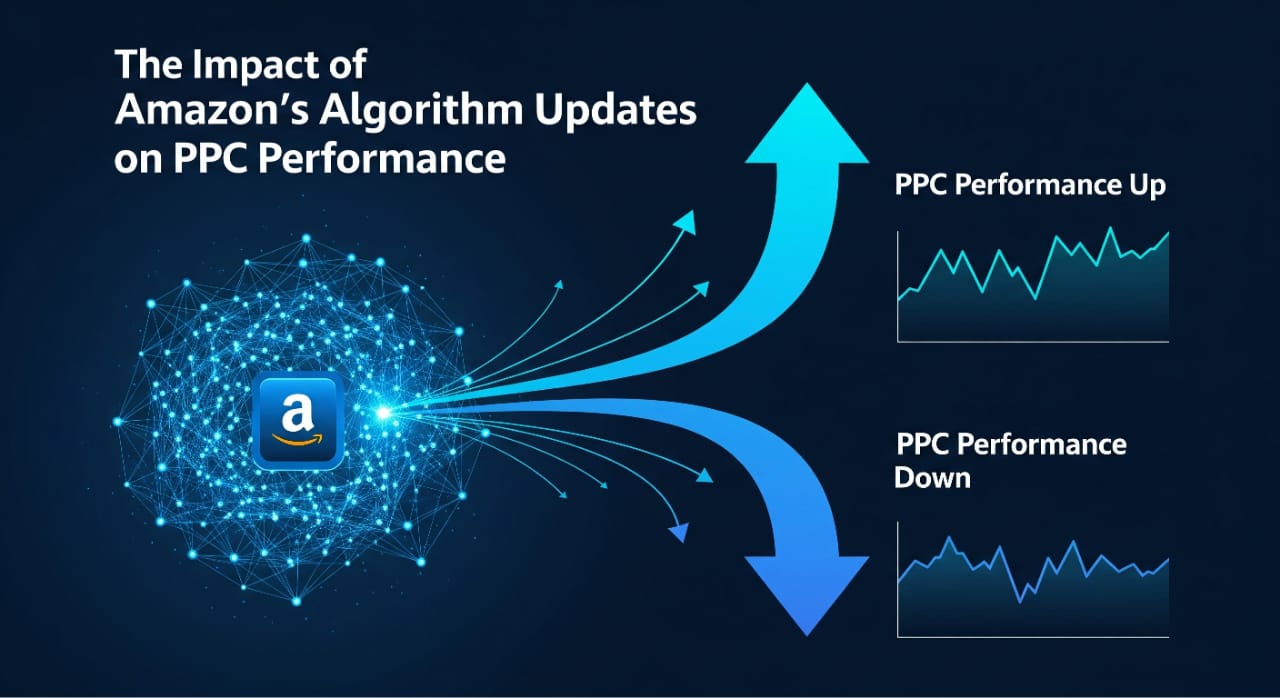Amazon’s advertising ecosystem is constantly evolving – and 2025 has already seen some major algorithm changes that are shaking things up for sellers and advertisers alike. Whether you’re managing six-figure ad budgets or scaling new brands, understanding how these updates affect your Amazon PPC performance is crucial to staying competitive.
In this blog, we’ll break down the most significant Amazon algorithm updates of 2025 and what they mean for your ad strategy moving forward.
Sponsored Products Ranking Now Heavily Tied to Conversion Rate
One of the biggest shifts in 2025 is the increased weight Amazon places on conversion rate (CVR) when ranking Sponsored Products.
What’s New?
Amazon’s A9 algorithm has started rewarding listings that consistently convert better than competitors – even if the bid is slightly lower.
This means campaigns with high CTR but poor conversion rates are seeing declining impressions.
What to Do:
Focus on listing optimization: High quality images, mobile-first bullet points, and stronger A+ content.
Segment high performing keywords into separate campaigns to isolate performance and boost CVR.
Real-Time Auction Adjustments via Amazon Marketing Stream (AMS)
In 2025, Amazon expanded its Marketing Stream data capabilities – allowing for real-time insights into campaign performance by the hour.
Impact on PPC:
Bid algorithms can now be adjusted based on hourly performance trends (e.g., increasing bids during 6-9 PM peak conversions).
Static, 24/7 bidding strategies are losing effectiveness.
Pro Tip:
Use automation platforms or custom rules to adjust bids dynamically based on hourly data.
Identify your “golden hours” and allocate more budget where ROAS is strongest.
Shift Towards Relevance and Shopper Intent Over Raw Bids
Amazon’s latest update prioritizes ad relevance and search intent matching more than ever before. Simply increasing your bid won’t guarantee visibility unless your product is highly relevant to the query.
Examples:
Broad match campaigns without proper negations are seeing reduced impressions.
Branded terms are being favored less in non-brand campaigns, forcing advertisers to segment more clearly.
Optimization Tips:
Structure campaigns by match type and intent (e.g., branded, competitor, generic).
Invest in search term isolation to ensure every dollar is spent on converting queries.
Sponsored Brand Videos and Lifestyle Creatives Favored in Sponsored Brands
With video consumption surging, Amazon’s algorithm is prioritizing engaging video content in Sponsored Brand placements.
Key Updates:
Video completion rate and click-through data now directly affect visibility.
Low-performing creatives are automatically throttled – even if budget is high.
Action Plan:
A/B test multiple video creatives.
Use lifestyle/product-in-use footage over static product demos.
Keep videos concise (15–30 seconds) and mobile-optimized.
Retail Readiness as a Key Ad Performance Factor
In 2025, Amazon began penalizing PPC campaigns for ASINs with poor retail health.
Retail Readiness Metrics Now Affect:
Ad impression eligibility
CPC inflation (higher costs for underperforming listings)
Watch Out For:
Low stock availability
Poor review ratings
Slow shipping timelines
How to Respond:
Integrate your PPC and operations team to ensure only fully retail ready ASINs are actively promoted.
Use Amazon’s Retail Readiness Checklist regularly as part of your ad launch process.
Final Thoughts: Adapt or Get Left Behind
Amazon’s 2025 algorithm updates are clearly pushing advertisers to be smarter, not just spend more. Winning in the current landscape requires a balance of data driven PPC strategy, strong creative assets, and full funnel optimization.
We’re already leveraging these insights to keep our clients ahead of the curve – with performance based structures, and a strong emphasis on listing health.
Want help adapting your PPC strategy to Amazon’s 2025 changes?
Get a free audit or contact us to discuss how we can scale your brand efficiently in this evolving landscape.


